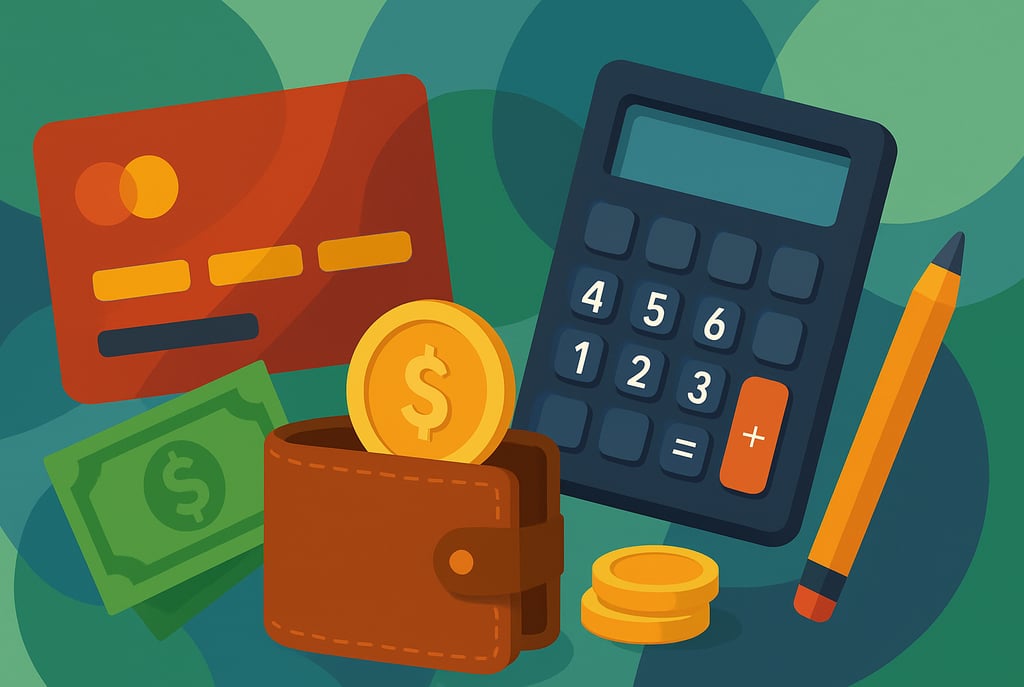💳 How to Use Your Credit Card to Your Advantage (Without Falling into Debt!)
Do you feel like your money runs out before the end of the month, even when you try to control your spending? This post is for you! Discover how to apply financial intelligence in your daily life and change your relationship with money for good. Here, we explain how small habits and conscious decisions can help you organize your finances, get out of debt, and even start investing. Whether you're a beginner or someone already trying to budget, the practical tips in this post will show you that having a balanced financial life is completely possible - even on a tight income.
7/25/20252 min read


The credit card is simultaneously one of the most useful and dangerous tools in the financial world. It can make life easier, offer benefits, allow interest-free installments, and even help with spending control. But when misused, it becomes one of the main causes of debt and financial stress.
Many people believe the problem lies with the card itself. However, the truth is that the card is neither good nor bad—it simply reflects the user's habits and decisions. So, if you want to avoid headaches while making the most of its benefits, keep reading.
📌 1. Understand What a Credit Card Really Is
Many people see their credit limit as "extra" money. This is a serious mistake. The limit is simply how much the bank or issuer is willing to lend you for that month—not additional income. Every time you use the card, you're making a promise: "I'll pay this back by the next bill."
The trap arises when that promise can't be kept. Accumulated installments, impulse purchases, and poorly managed emergencies can push your bill beyond your repayment capacity.
🛠️ 2. Use the Card Strategically
✔ Have no more than two cards
Too many cards lead to disorganization. One primary card and, at most, one backup are enough for most people. More than that tends to create confusion, missed payments, and growing debt.
✔ Choose the best due date
Pick a date right after your paycheck arrives. This ensures you'll have funds available and avoids late fees or interest charges.
✔ Avoid unnecessary installments
Interest-free installments may seem like a good deal, but they tie up your future income. Before splitting a purchase, ask: "If this amount is deducted from my budget over the next few months, can I still pay my bills on time?"
🔍 3. Track Your Spending Frequently
The most common mistake is only checking your bill on the due date—by then, it's often too high, and the shock is inevitable. Instead, monitor spending weekly (or even daily) using:
Your card's built-in app
Budgeting apps like Mobills, Organizze, Guiabolso, or Minhas Economias
These tools show where your money is going in real time.
💰 4. Enjoy the Benefits—Without Overdoing It
Many cards offer perks like cashback, miles, partner discounts, extended warranties, and rewards programs. These are great—but never a reason to overspend.
Use benefits wisely. Redeeming points for flights or getting cashback is fantastic—if the purchase was necessary. Don’t spend more just for the "perk."
⚠️ 5. Avoid the Minimum Payment Trap
Paying just the minimum is the gateway to revolving credit—one of the worst interest rates out there. In just a few months, a small debt can double or triple. Whenever possible, pay the full balance. If you can’t, reassess your habits immediately.
🚀 Conclusion: The Power Is in Your Hands
Your credit card can be your greatest ally or your worst enemy—it all depends on how you use it. With knowledge, discipline, and control, you can turn it into a financial management tool, not a burden.
Always remember: The problem isn’t the card—it’s impulsive, disorganized, and unplanned usage. By taking control of your finances, you’ll use your card with intelligence, responsibility, and strategy.
Ready to make your credit card work for you? 💳✨